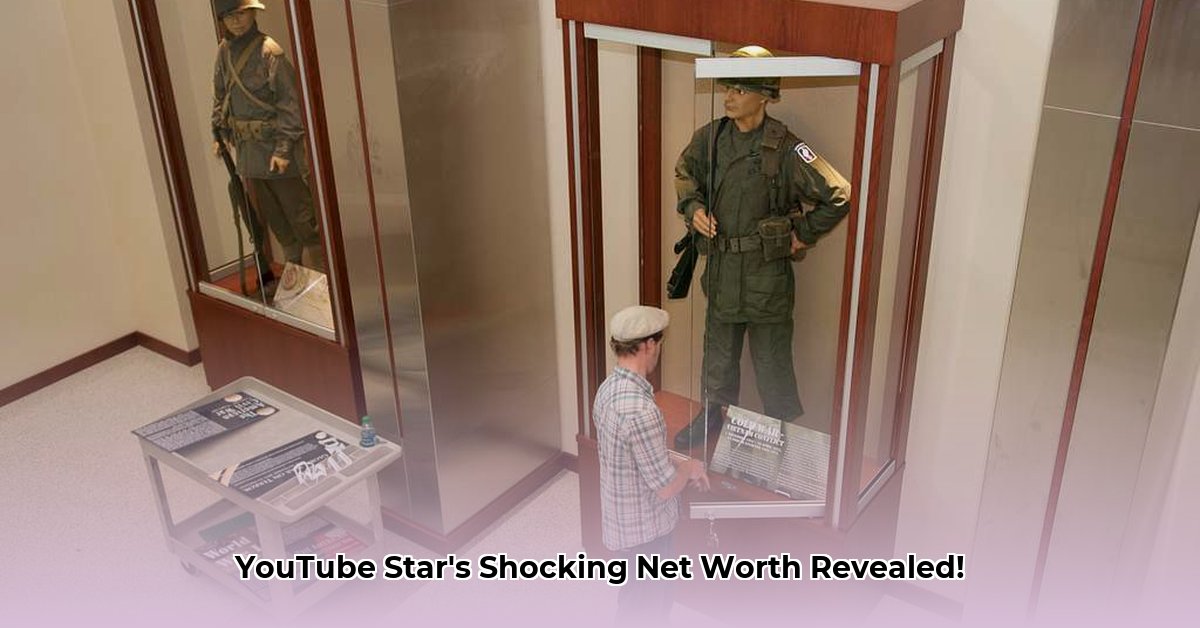
YouTube star Christopher Ruff, known for his channel "Direct D," amassed a significant net worth through his citizen journalism videos. Estimates suggest his annual income from ad revenue alone could reach $313,771. However, his controversial reporting style, focused on documenting often-confrontational police interactions, landed him in court, raising critical questions about the intersection of free speech, responsible journalism, and the law. This article delves into the complex interplay of Ruff's financial success and his legal battles.
The Direct D Dilemma: Success and its Consequences
Ruff's YouTube channel, Direct D, gained popularity by filming police interactions, often in high-tension situations. This approach, while resonating with a large audience and generating substantial income, ultimately led to legal repercussions. A Mesa, Arizona judge sentenced him to five days in jail and three years of probation, along with a court order prohibiting him from filming Mesa police officers. The ruling stemmed from four specific incidents where the judge determined Ruff's actions escalated tense situations and obstructed ongoing investigations. How does a successful YouTube channel built on filming police become a legal liability? This question underscores the complexities of citizen journalism.
First Amendment Rights vs. Public Safety: A Balancing Act
The legal battle ignited a debate around the First Amendment and its protection of free speech. Ruff argued his actions were protected under the right to record public officials. However, the court emphasized the potential danger of escalating tense situations during police operations, highlighting the delicate balance between citizens' right to film and the need for public safety and effective law enforcement. This conflict highlights the lack of easy answers, particularly in high-stakes, emotionally charged situations as the line between observation and interference can be dangerously fine.
Expert Perspectives: Navigating the Gray Areas
Pastor Andre Miller, a community leader, provided a nuanced commentary on the situation. While acknowledging Ruff's aggressive reporting style, Miller also questioned the legality of the filming ban. This perspective underscores the multifaceted nature of the issue, with no easy answers or widespread consensus.
The High-Stakes Game of Citizen Journalism
The risks inherent in citizen journalism are significant. While it can hold powerful institutions accountable, it carries potential legal and personal consequences. Ruff's story serves as a stark reminder of the potential pitfalls. How can citizens fulfill their role in public oversight without facing legal and/or personal repercussions? Is there a responsible standard for citizen journalists that can balance freedom of speech with legal compliance? These are difficult questions to answer.
Analyzing the Stakeholders: Short-Term and Long-Term Impacts
The case's impact extends far beyond Ruff himself. Here's an analysis of the short-term and long-term consequences for various stakeholders:
| Stakeholder | Short-Term Impact | Long-Term Impact |
|---|---|---|
| Christopher Ruff | Jail time, probation, filming restrictions. | Potential career shifts, legal appeals, or changes in reporting style. |
| Mesa Police Department | Increased scrutiny, potential review of interactions with citizen journalists. | Potential adjustments to departmental procedures and guidelines concerning filming during investigations and arrests. |
| Legal Professionals | Case analysis impacting citizen journalism and reporters' rights. | Refining legal frameworks and guidelines concerning filming law enforcement. |
| YouTube & Social Media Platforms | Potential review of content moderation policies. | Enhanced resources and support for content creators facing similar legal risks; evolving community guidelines on citizen journalism. |
The Future of Citizen Journalism: A Call for Responsible Reporting
The case raises crucial questions about the future of citizen journalism. How can responsible reporting be balanced with freedom of speech and legal compliance? How can individuals fulfill their role in public oversight without jeopardizing their personal safety or legal standing? These complex issues demand careful consideration and a nuanced understanding of existing laws and potential liabilities.
Key Takeaways:
- The First Amendment protects the right to record police in public, but this protection is not absolute and is subject to limitations.
- State laws regarding recording police differ; understanding local regulations is critical.
- Openly filming is generally safer than covert recording. Covert filming may violate laws regarding one-party or two-party consent.
- Interference with police operations can lead to legal charges. Maintaining a safe distance and avoiding interference are crucial.
Christopher Ruff's story is a cautionary tale. While his YouTube channel brought financial success, his legal battles highlight the delicate balance between citizen journalism, legal boundaries, and public safety. The ongoing debate surrounding this case will continue to shape the landscape of online reporting and the responsibilities of citizen journalists.